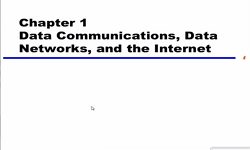본 연구는 Computer-Mediated Communication Systems (CMCS)를 통하여 가상그룹이 상호작용을 할 때의 시스템 제약성(systems restrictiveness)이 그룹의 성과에 미치는 영향을 연구한다. 연구를 위하여 2x2 실험...
http://chineseinput.net/에서 pinyin(병음)방식으로 중국어를 변환할 수 있습니다.
변환된 중국어를 복사하여 사용하시면 됩니다.
- 中文 을 입력하시려면 zhongwen을 입력하시고 space를누르시면됩니다.
- 北京 을 입력하시려면 beijing을 입력하시고 space를 누르시면 됩니다.

Toward Flexible Virtual Group Coordination = 가상그룹 상호작용의 유연한 조정에 관한 제언 - Computer-Mediated Communication Systems 기반 상호작용 지원에 관한 연구 -
한글로보기https://www.riss.kr/link?id=A102127361
- 저자
- 발행기관
- 학술지명
- 권호사항
-
발행연도
2016
-
작성언어
English
- 주제어
-
등재정보
KCI등재
-
자료형태
학술저널
-
수록면
19-42(24쪽)
- 제공처
-
0
상세조회 -
0
다운로드
부가정보
국문 초록 (Abstract)
본 연구는 Computer-Mediated Communication Systems (CMCS)를 통하여 가상그룹이 상호작용을 할 때의 시스템 제약성(systems restrictiveness)이 그룹의 성과에 미치는 영향을 연구한다. 연구를 위하여 2x2 실험을 실시하였고, 실험그룹 간의 서로 다른 상호작용 적용 제한성의 수준은, 각 그룹이 CMCS에 의해서 정해진 상호작용의 룰과 절차를 각 그룹의 상황에 맞게 수정할 수 있는 권한의 차이로 규정되었다. 조정구조의 제한성의 차이는 그룹리더의 존재여부(with or without group leader)와 의사소통방법(concurrent or sequential communication)에 의해서 구현하였다. 이러한 실험조건으로 CMCS에 의해서 주어진 상호작용의 룰과 절차를 변경할 수있는 가상그룹은 덜 제한적인(flexible) 조정구조를 통한 상호작용, CMCS에 의해서 주어진 조정구조에 한해서만 상호작용하는 제한적인(restrictive) 상호작용의 조정구조를 준비하였다. 이 실험의 결과로서 객관적 의사결정의 질(objective decision quality)은 동시의사소통 그룹과 순차소통 그룹 사이에서는 차이가 없었으나, 그룹리더의 존재여부 간에는 리더가 있는 그룹이 리더가 없는 그룹보다 우월하게 확인되었다. 의사결정과정의 만족도(satisfaction with decision process)에 관하여는 동시의 소통그룹과 리더가 있는 그룹의 만족도가 현저히 높은 것으로 조사되었다. 이 실험의 결과에 근하여, 본 연구는 CMCS에 의하여 지원되는 가상그룹은 CMCS에 의해서 규정된 상호작용 룰과 절차를 상황에 맞게 변경할 수 있도록 유연한 조정구조로 그룹멤버 간의 상호작용을 지원할 것을 제한한다.
다국어 초록 (Multilingual Abstract)
This study examines the impact of the coordination restrictiveness on performance for virtual groups interacting through Computer-Mediated Communication Systems (CMCS). For this purpose, a 2 by 2 factorial controlled experiment was designed in such a ...
This study examines the impact of the coordination restrictiveness on performance for virtual groups interacting through Computer-Mediated Communication Systems (CMCS). For this purpose, a 2 by 2 factorial controlled experiment was designed in such a way to ensure that virtual groups in each experimental condition are coordinated with the varying degree of interaction restriction. The level of restrictiveness of a coordination structure was determined by how much freedom groups have in each experimental condition in modifying a coordination structure that was arranged as CMCS-implemented interaction rules and procedures. Two independent variables were chosen in constructing the experiment: Communication Mode and Group Leader. Regarding group performance measures, objective decision quality was equal for both communication groups, but significantly better in groups with a leader. Perceived decision quality was better in concurrent communication groups than sequential ones. Satisfaction with a decision process was higher in concurrent communication groups and groups with a leader. Based on the experimental results, the study suggest that CMCS-supported group interaction supports need to be flexible in a way that allows each group to modify CMCS- implemented coordination structure.
목차 (Table of Contents)
- Abstract
- Ⅰ. Introduction
- Ⅱ. Literature Review on Coordination Structure
- Ⅲ. Research Framework and Independent Variables
- Ⅳ. Research Hypotheses
- Abstract
- Ⅰ. Introduction
- Ⅱ. Literature Review on Coordination Structure
- Ⅲ. Research Framework and Independent Variables
- Ⅳ. Research Hypotheses
- Ⅴ. Research Design and Methodology
- Ⅵ. Operationalization of the Experimental Conditions
- Ⅶ. Research Results
- Ⅷ. Discussion
- Ⅸ. Limitation and Recommendation for Future Research
- References
- 요약
동일학술지(권/호) 다른 논문
-
On the International Mobility of the Highly Skilled
- 한국로고스경영학회
- Daniel J. Kim(다니엘 김)
- 2016
- KCI등재
-
- 한국로고스경영학회
- Paul Kenneth Maghirang
- 2016
- KCI등재
-
Prediction of Operating Cash Flows Using Accounting Information
- 한국로고스경영학회
- Yong-Min Kim(김용민)
- 2016
- KCI등재
-
Job-related Burnout, Organizational Citizenship Behavior and Task Performance
- 한국로고스경영학회
- Yoonjung Baek(백윤정)
- 2016
- KCI등재




 DBpia
DBpia


